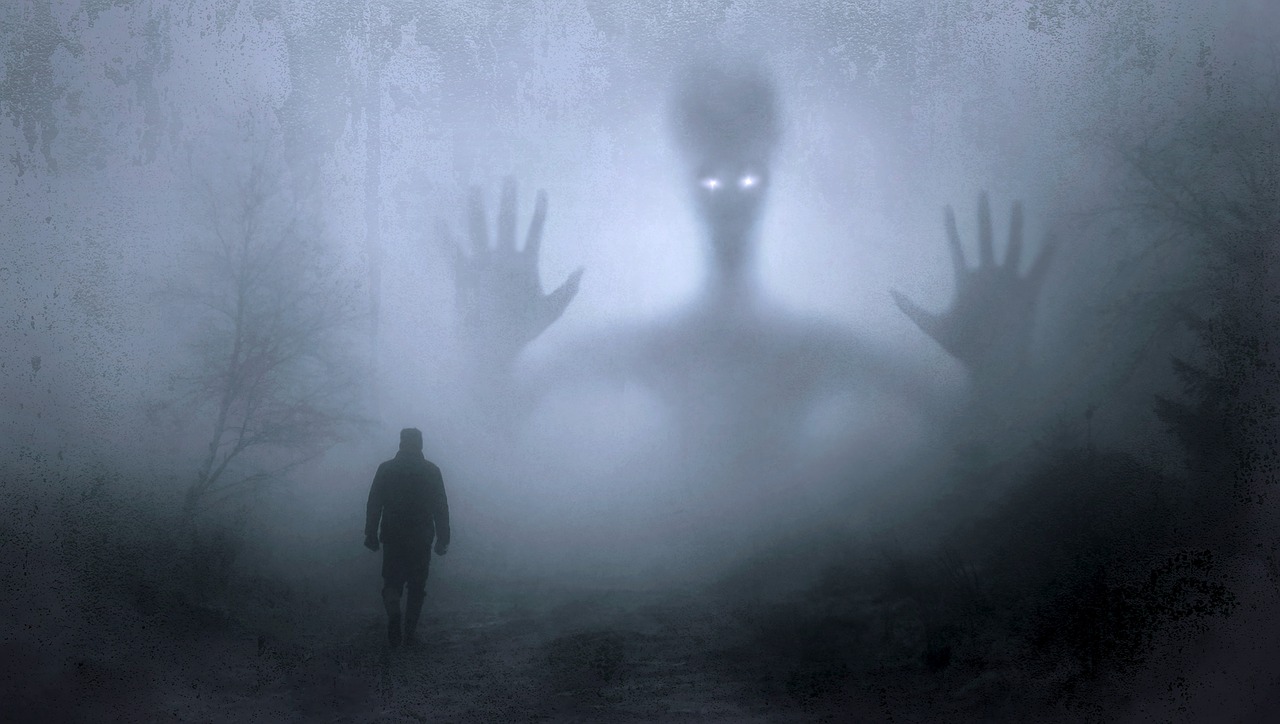Photo by KEPPEPICS from Pixabay
Did you know that 40% of all children’s dreams are nightmares? Scientists believe that children overcome their fears from reality through terrible dreams, but what happens with adults? Do we ever outgrow our bad dreams?
From the standpoint of depth psychology, phenomenon of dreaming is essential for mental health of human. In dreams, when our body is completely relaxed and conscience repressed in the background, the unconscious mind comes to the fore. If we compare our consciousness to a star in the universe, which would represent the unconscious, we can understand how limited our consciousness actually is. Nightmares may indicate a problem that should be dealt with in reality. Therefore, nightmares can be our best friends, since every dream which troubles us has a duty to awaken our consciousness and alert us that something is wrong. Night terrors are often spontaneous, but they might be also caused by various factors, such as certain disorders that we are probably not even aware of. There are a number of physical and psychological factors that trigger nightmares. The most powerful of all is stress, that affects us both physically and mentally, when we are awake and when we sleep. The feeling of falling down, trying to escape and dreams in which you are trapped are often interpreted as nightmares are a manifestation of our hectic pace of life. Although sometimes it seems that nightmares have nothing to do with the life of the dreamer, this is often not the case. Here, it’s very important to remember Jung’s words that, “No dream symbol can be separated from the individual who dreams it”. Even if it does not have a direct connection with the current life situation, bad dreams can be easily linked to some past situation the person cannot deal with.
We can conclude that the bad dream is more than just a dream. In order to better understand what happens to us during the night, we have to deal with the issues that trouble us during the day. Better communication with yourself throughout the day will provide us a peaceful sleep at night. We can also do the other way around, and that is to try to decipher the symbols our dreams give us, which would help us understand better what is bothering us.
References
Jung C., Jaffe A. (1963). Memories, Dreams, Reflections, Pantheon Books (English).
Borreli L., (2015, Mart 31). A Bad Dream Is More Than Just A Dream: The Science Of Nightmares, Retrieved from http://www.medicaldaily.com/bad-dream-more-just-dream-science-nightmares-327586.
Melina R.,(2010, July 28). Why Do We Have Nightmares?, Retrieved from http://www.livescience.com/32730-why-do-we-have-nightmares.html.
Does the fact that you need to write an essay about dreams give you nightmares? That’s a good starting point for your research! All jokes aside, we understand that academic writing can sometimes resemble horror movies, but we are ready to break the vicious cycle of sleep deprivation and poor writing quality. First of all, check the provided essay about nightmares to find inspiration for your own essay about dreams. Secondly, look through other articles about academic writing, topic choice, and motivation from our blog. We are sure you will be able to find something helpful!


Leave a Comment: